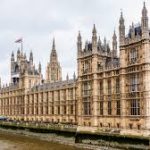By Tunji Ajibade
No one would judge a person based on religion if they did not announce their religion. So it’s logical that every move an individual makes is watched by others based on the religion such an individual claims to have. As such people see it when what a religionist claims isn’t what they do. You don’t say religion. You do religion. Religion is in your actions and utterances. It’s those who observe you that nod, admitting that you have religion. This is by the way of backdrop to where I’m headed.
Governor Sim Fubara of Rivers State, you received a visitor the other time and you told the visitor that your state was “a Christian state.” You said you had no apologies for saying so. You went ahead to say that you were not asking your visitor for anything. I shall dissect that comment in view of the political happenings in your state recently vis-a-vis your action and utterance when Pastor W.F. Kumuyi of Deeper Life Christian Church visited you. Let the reader take note that I don’t make false allegations in my column. I observe what transpires in our polity and I interrogate it. Sometimes such may turn out to be what others don’t take note of. It’s my job as a journalist and columnist to connect what others might not have connected. We don’t always see the same thing the same way so I state here what Governor Fubara or the reader probably didn’t connect about the situation in Rivers State.
On reading this I expect those who love Governor Fubara to convince him that I’m his enemy. It’s what some have been doing each time I state that they should watch what they say so that they don’t give the faith they say they belong to a bad image. I can’t understand whoever says they have a religion but express hatred for fellow humans. They express hatred for and demonise the very people who are the reason their religion says they should be “light” and “salt” where they are. Do they listen to themselves when they talk? I can’t comprehend preachers who become activists and defenders for their tribes rather than for humanity that was the focus of the originator of their religion. Others boasted about things the originator of their religion didn’t say he was interested in.
Governor Fubara, you once proudly announced that your pastor went around campaigning for you during the last election. I suppose that’s your understanding of what a preacher is meant to be doing. There’re religionists who will disagree with you that political campaign is the job of a preacher. No wonder you didn’t understand the times and the reason Kumuyi came to town. I imagine religionists who have understanding can look back now and say Kumuyi did come to town for a purpose, possibly for you even going by what had since transpired. But you who belonged to the same faith as Kumuyi didn’t perceive this. I imagine that your understanding must have informed the manner you spoke to and treated Kumuyi.
When Kumuyi came to preach in your state you said you received him “not because we want anything from you.” Governor Fubara you are a Christian, but a preacher, the caliber of Kumuyi, came to your state and you told him you didn’t need anything. Is that the kind of comment that the holy book you use teach adherents to make? You need nothing, with all the challenges in your state at that stage? Read that holy book you have and you see that wherever people like Kumuyi showed up, people of ancient Israel eagerly sought for divine intervention. Wherever Samuel the prophet showed up people treated him with respect asking if everything was fine. They knew Samuel never showed up if there was no serious issue.
Governor Fubara, Kumuyi came to town and you had the opportunity to ask if all was fine. Even if all was fine in your state at that time as you claimed, the holy book you use must have taught you to be concerned about the future. From your comments to Kumuyi it would be obvious to religionists that you didn’t recognize the opportunity presented to you that time to forestall a crisis. Kumuyi sat there looking at you that time and I imagined the thought behind that face was, “Does this man realize the implications of what he’s saying?” Then the political crisis happened in your state, Mr Governor. You didn’t see that coming, did you? You were overconfident that there would be “no shaking.” Now you’ve been shaken. We saw it in your mien, Mr Governor.
You talked that time in the face of Kumuyi as though everything was paradise in your state. Meanwhile, in Sage, an academic journal, George C. Nche in 2020 (referencing previous studies) stated thus: “Although cultism, cult-related killings and kidnapping have widely been experienced in some other parts of the country, they seem to be more prevalent in the Niger Delta region, particularly in Rivers State. In fact, the prevalence of these menaces in Rivers State has made the state to be declared as one of the most volatile areas in the country.”
Furthermore, on May 10, 2023, The Guardian newspaper in an editorial stated thus: “Rivers State is gradually becoming a paradise for cultists, and it is most repulsive…When an urban area is freely controlled by both state and non-state actors without checks, they can create a culture of fear and violence that pervades every aspect of life. This is what is assuming a frightening dimension in Rivers, and it requires an urgent intervention of the state authorities.” I leave other social problems out. But Governor Fubara, this was the state Kumuyi came to and you told him that yours was “a Christian state” already, thus inferring that his presence wasn’t needed.
I turn to how you actually conducted yourself at the time Kumuyi visited. The political leader must be honoured. The holy book you use says so. But clever political leaders also know that it’s to their benefit that they honour a preacher. I looked at the sitting arrangement when you received Kumuyi in audience and I saw arrogance on display. I’ve seen you seated at a round table with politicians and other visitors. When Kumuyi came you approved it as a seat was set on high for you, completely separated from that of the preacher. You’re a high state official, Governor Fubara. But wise state officials know when to come down from high horses and humble themselves. They do so mostly when preachers come calling. I didn’t see that in your sitting arrangement, comments, and in your tone. You received Kumuyi but the air around you was saying “we don’t need you here.” There was something haughty in the entire episode. A humble politician would have placed Kumuyi next to himself, honouring him.
The sitting arrangement, the comments, and the tone with which you spoke didn’t show careful handling of a preacher such as Kumuyi. The same was reflected in the manner you handled political matters in your state. The immediate past governor of your state, Nyesom Wike, summarized it when he said you destroyed the entire political structure that brought you to power in just a few months. Governor Fubara, I noticed a few weeks after Kumuyi’s visit that you were commenting on the need for all to work together to stamp out problems such as cultism among people of the younger generation in your state. I’m not sure you saw that as something for which you should have made a request when Kumuyi visited.
Maybe you didn’t believe your state needed prayers. But people who belong to the same faith as you always say prayers can resolve all issues. In any case, political crisis started weeks after you told Kumuyi that you didn’t need anything from him. When it happened you ended up looking so sober at even your state university’s convocation ceremony that I couldn’t believe you were the same person that spoke to Kumuyi in the manner you did. But a fellow politician bared his fangs and you became sober, saying you would “pay any price for peace” to reign. That was a peace you probably would have secured and wouldn’t need to pay this heavy political price if you had treated Kumuyi the preacher with some humility. This is about those who claim they have religion but hardly practice its fundamentals.











